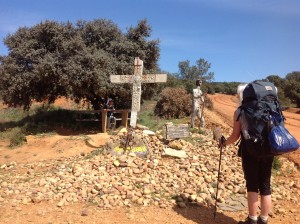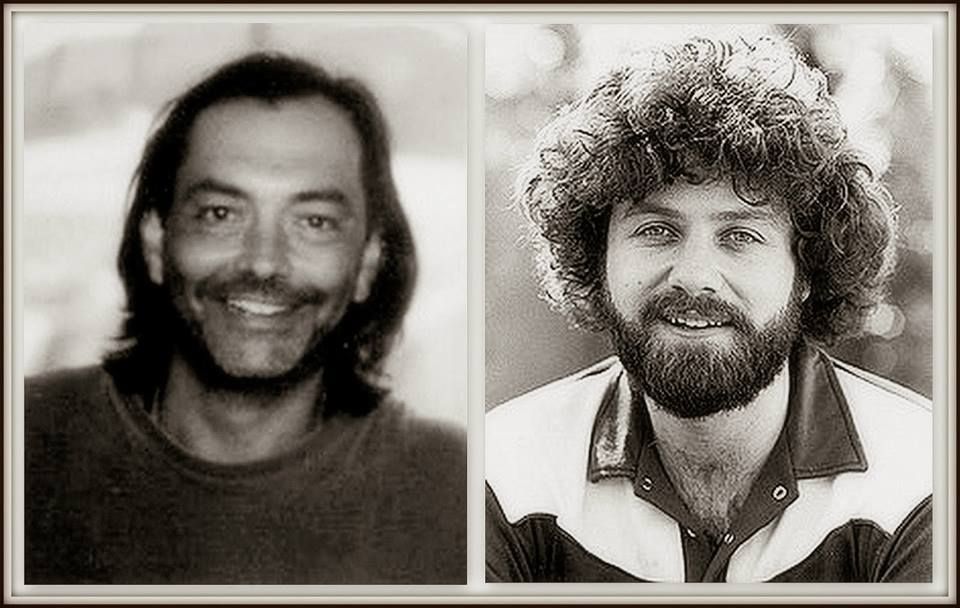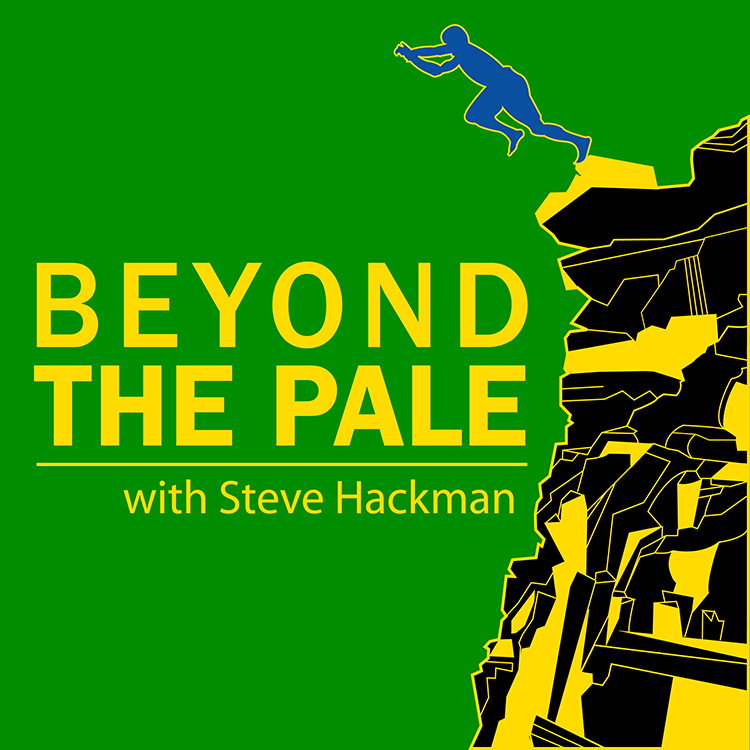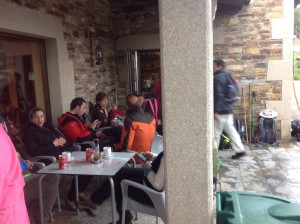Judging “Tourist Pilgrims” On The Camino de Santiago
At Beyond the Pale I devote a fair bit of space  towards dismantling the politics of tribalism and “us vs. them” thinking. Usually because, well, I struggle with it so much myself.
towards dismantling the politics of tribalism and “us vs. them” thinking. Usually because, well, I struggle with it so much myself.
Case in point:
While preparing for the Camino de Santiago I read about how the pilgrimage would change during the last 100 km before reaching Santiago. This was due to an influx of new pilgrims who would start in the town of Sarria which is the last place one can start the Camino in order to be issued a Compostella certificate. Youtube videos and blogs encouraged pilgrims who had started their journey from much farther back not look down on these “tourist pilgrims”.
I remember thinking of course I wouldn’t do that. Where someone starts is their own business and we are all just pilgrims heading to Santiago.
Yeah….right!
Once I reached Sarria I saw whole groups of people walking together with the familiar scallop shell dangling from their day packs.
Day packs?
I’d been carrying my FULL pack for a month!
Who were these strangers, these “tourist pilgrims” and what were they doing on MY Camino trail?
At one point Gabriel and I approached a cafe to get a morning coffee only to find it full of Italian “tourist pilgrims”. The bartender was trying his best to serve the 10 or so patrons and I realized my normal morning ritual that I’d been enjoying for four weeks was going to be disrupted by these “imposter” pilgrims.
I wanted to scream!
I wanted to yell!
I wanted to declare to all of these day pack hauling, fresh smelling, unwearied, unweathered, clean shaven, “tourist pilgrims” in their unblemished new shoes that “everyone who had not arrived at this cafe having walked FROM FRANCE needs to go to the back of the queue and make way for a REAL PEREGRINO!”
These folk came in groups. How could they do a pilgrimage as a group? Where was the personal trials? The personal reflection? How do you have an inner journey with “the gang”? I overheard two Swiss “tourist pilgrims” saying how they were staying in a hotel rather than albergues. (dormitories where pilgrims sleep while on the Camino).
Hotels? How do you do a pilgrimage from a hotel? Where are the bunk beds? The communal showers and toilets? The “pilgrims lullaby” of snoring which earplugs just barely keep at bay. Granted, I was one of the guys snoring, but that’s besides the point!
Yes, it became quickly apparent that I had tribalized the Camino. Those friends who I had shared the Way with for weeks had become “us”. These “hotel ladies” and others that had started the Camino in Sarria had become “them”. If I recognised you, you were “in”…if I didn’t, you were “out”.
Of course Jesus dealt with this type of thing a lot. Judging….Here I was comparing my pilgrimage to theirs and in my eyes they came up way short. Then as I walked and reflected on my “Camino” superiority over my new ” would be” fellow pilgrims another idea struck me; I thought about how my friend Rob had walked from Mongolia to Hong Kong through the Gobi Desert in winter. Compared to his 6 month ordeal my little jaunt from France was a walk in the park. He didn’t have a warm cafe to drop into for hot coffee and croissant. He couldn’t stop into a supermarket for fresh food, toiletries, and other supplies. And seeing the pictures of the tent he stayed in my albergue now looked like a hotel.
Cripe, compared to him, I was a “tourist pilgrim” too! I wasn’t an “us” at all. I was a “them”. Maybe that was why Jesus spent so much time warning us not to judge. Judging leads to comparisons…and sooner or later, we all suffer by comparison. Instead Jesus spent a lot of time turning all of “them” into “us”.
Later that morning two of the Italians missed the yellow arrow showing the Camino path veered off the road. I watched them chatting oblivious to the fact they were heading off in the wrong direction. To say I was tempted to not warn them would be wrong…I really am to nice a guy.
“Hello”. I yelled to get their attention. They continued walking…
“Ol-la” I yelled even louder. They turned…
Pointing with my walking stick at the yellow arrow I hollered, ” Camino is this way”
The Italians nodded and rushed back. Catching up with me they offered their thanks and said in broken English, “At the next cafe,we’d like to buy you a coffee”
In life their are no “tourist pilgrims”. Just “pilgrims”. Just “us”! And we are all simply doing our best to get to Santiago!
Peace,
Steve
2 comments
Comments are closed.
Related
-
Uncategorized
Why Many Christians Still Build A House On Sand
By Steve -
Uncategorized
Love Does: The Extraordinary Life of Bob Goff
By Steve -
Jesus Movement / Music / Uncategorized
Keith Green & Rich Mullins: Where Would Their Theology Be Today?
By Steve
-
Uncategorized
If Only “Answers In Genesis” Could Find Their “Answers In Jesus”
By Steve -
Uncategorized
Hello world!
By Steve -
Uncategorized
Heaven & Earth: Right Here…Right Now!
By Steve -
Uncategorized
3 Reasons Why Jesus Is NOT My “Personal Lord & Savior”
By Steve -
Uncategorized
More “Left Behind”: Thoughts on Raptures, Resurrections, and Turning The Prince of Peace into A God of War
By Steve -
Uncategorized
4th of July: Back in the USA
By Steve -
Uncategorized
Why We Defend The Insane Angry God
By Steve


Points I’ve pondered from an expressly Catholic, spiritual (and yes that means expressly “religious” to me) perspective:
1. I have taken pilgrimages by plane, car and bus. I’ve watched septua- and octogenarians get worn out by long bus slogs from one French Marian shrine to the next…they were pushing their boundaries to visit as many holy sites as they could: Lourdes, Chartre, Paray-le-Monial, Fatima, etc., all in one trip, often the one great trip of their life. They weren’t carrying their backpacks. Why would they?
2. When King Alfonso II the Chaste made the first pilgrimage to Santiago, laying the foundation for what would become the Camino Primitivo, does anyone really think he didn’t travel with a whole retinue, who set up his tents, cooked his food and saw to his beasts of burden?
3. When we read the Codex Calixtinus, it would seem that there are narratives of people travelling on horses, whose mounts presumably carried their baggage, no?
What I conclude…ancient and contemporary histories leave us a very broad choice of methods for pilgrimage. There is a quasi-authoritative set of presumptions among some camino walkers (including carrying one’s backpack, staying in dormitories, avoiding hotels) that is challenged by that history.
What are the essential elements of pilgrimage? Facing one’s limits may or may not be a part of it. There certainly is room for building a personal discipline, and that may involve suffering. But suffering for its own sake? for God? It better have a better purpose (i.e., to feed the hungry; to fight injustice; to build housing for the poor) than simply for its own sake. We can make God into some kind of heavenly vampire, sucking on the pains of his children if we’re not more careful than that. (i have no idea at all why secular pilgrims would adopt this one — happy to hear it if you know of one).
As for albergues, there are ample graces from travelling that close to, and discovering the goodness of, others that require no explanation to those who’ve done it, but that may not be another’s pilgrimage. For some, the time of pilgrimage may be, simply, to spend time in the Presence, or to form a deep fraternity with a group of pilgrims, or to deepen a wounded marriage, or to tangle with grief, etc. The albergue could very well be a distraction for some.
So (to quote Mao?), let a thousand flowers bloom! There are many ways to Santiago, and many ways to take those ways.
Thank you for sharing Patrick. You offer some thoughtful perspectives although I must admit quotes from Chairman Mao are not the first thing that comes to mind on my pilgrimages 😉 Cheers